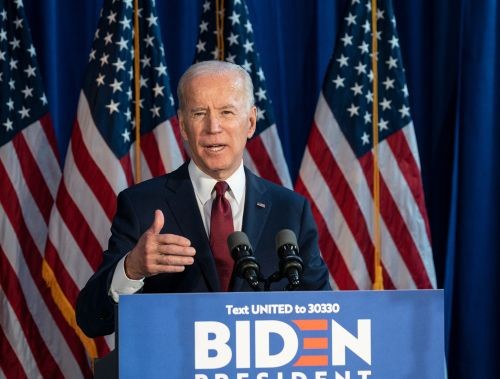Can the new US administration regain the reins of leadership in the Middle East ?
President Joe Biden did not bother to explain his Middle East policy during the presidential election campaign. Although there is an important foreign policy section in Biden's electoral manifesto, it did not include anything useful about the Middle East, except for the repeated criticism of former President Donald Trump's withdrawal from the nuclear agreement with Iran, removing US troops from Afghanistan and removing US support for the Saudi-led war in Yemen. Since foreign policy occupied only a small amount of airtime during the election campaigns, there was no opportunity to develop and articulate President Biden's vision for the Middle East.
President Biden is no stranger to the Middle East. His long experience in the Congressional Foreign Affairs Committee, and his position as vice president enabled him to get closer to the region's issues. The staff supporting President Biden has extensive
experience in the affairs of the region. Secretary of Defense General Lloyd Austin was the commander of the Central Command responsible for the Middle East. William Burns, the nominated CIA chief was ambassador to Jordan, in addition to his previous position as deputy secretary of state. Secretary of State Anthony Blinken was on the team of National security advisers to President Obamaand Vice President Biden. These experiences should have helped elevate the Middle East to a region of importance within the new administration's areas of interest. In addition to President Biden's scattered statements on the Middle East, the most important and detailed source of what this administration intended to do in the region were the Senate confirmation hearings for President Biden's nominees for foreign affairs positions, in which the ministers of Foreign Affairs and Defense and director of National Intelligence participated.
These sessions made it clear that the Biden administration does not intend to get involved militarily in the region. Neither the administration nor public opinion is ready to accept new American wars in the Middle East. At the same time, this administration does not intend completely withdrawing US presence from the region. It is more likely that the Biden administration will maintain an appropriate level of military presence, even if it prefers not to have to use it. The Biden administration intends to rely heavily on diplomacy and works with its regional allies, hoping that the combination of a limited military presence, active diplomacy, and working with allies will be sufficient to achieve American goals.
However, Biden's administration lacks clarity about American goals in the Middle East. It is not known exactly what goals the US administration is seeking to achieve in the region, after the importance of oil has declined and Israel has been able to defend itself? Rather, it appears that promoting democracy is the ultimate goal - even though this policy, which had plunged the region into a major crisis, had been abandoned.
Although the new administration has shown that it has a clear interest and position regarding the Iranian nuclear programme, the war in Yemen, human rights, American presence in the region, and working with allies, it is still developing its policy on other issues, especially Libya and Syria, the Palestinian issue, and Russian presence.
Working with the governments of the region
An important aspect of avoiding the current regime's change policy in the region is the tendency to develop cooperative relations with traditional US allies. Although the US administration is interested in winning allies and working with them as much as possible . However, this relationship will not always be easy all the time. The increasingly influential left wing of the Democratic Party has begun to pressure the Biden administration to adopt hard positions against governments that do not agree with its model of democracy and human rights. Therefore, the Biden administration must try to combine the contradictions arising from satisfying internal democratic and human rights demands, and the imperatives of working with regional allies.
The Biden administration lacks a principled and coherent vision of the Middle East that establishes a link between these different crises. The absence of the US from the Middle East for most of the last decade has left a vacuum that regional powers, especially Turkey and Iran, have tried to fill. They have been joined by Russia, which has turned into a major player in the affairs of the Middle East. Can the new US administration regain the reins of leadership and initiative in a volatile and highly complex region?


Comments